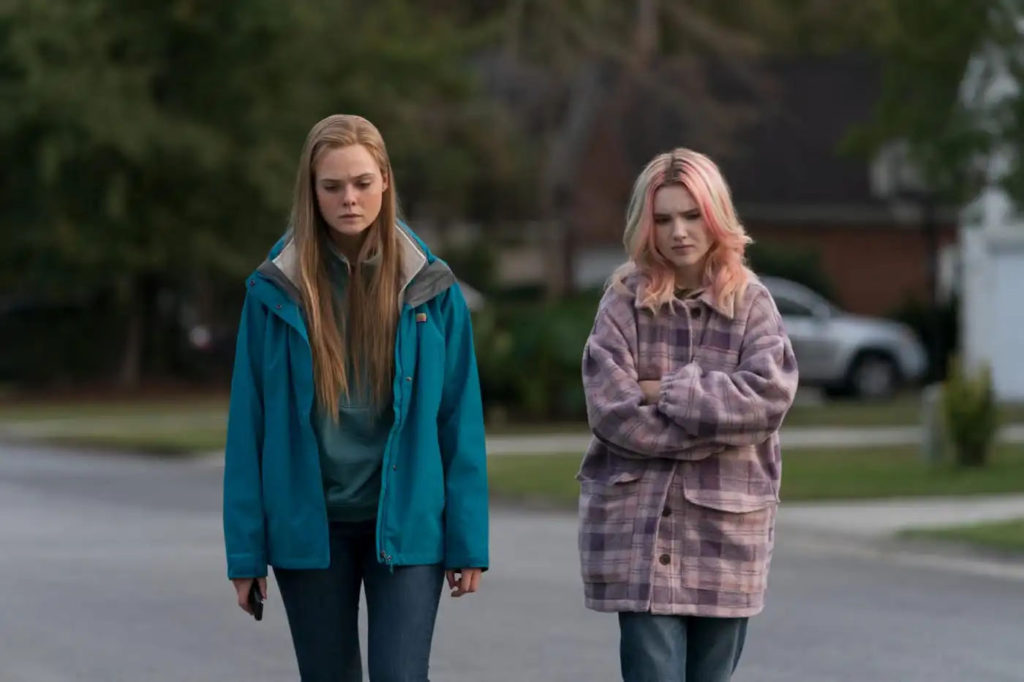The Girl From Plainville is different from its contemporaries dabbling in true stories: both the victim and the culprit involved have plenty of flaws, and it’s not entirely clear who’s the most responsible for what happened that fateful night on a K-Mart parking lot. The show doesn’t assign blame, instead choosing to examine these characters, as well as the people surrounding them, trying to make sense of the tragedy.
The series opens with Michelle Carter (Elle Fanning) being distraught over her boyfriend Conrad’s (Colton Ryan) death by suicide and trying to do everything she can to honor him and be by his family’s side. As the first episode continues, however, something seems to be off with Michelle: she’s too sweet, and she seems too intent on getting her friends involved and getting sympathy from them. There’s a moment where she revises a speech for a charity event that seems to have been lifted from her favorite show, Glee, that only reinforces that something is wrong with Michelle. Soon, as the police investigate Conrad’s death and find out the thousands of messages he exchanged with Michelle, it becomes apparent that Michelle actually encouraged Conrad to take his life. This sets off an unusual court proceeding where the prosecution tries to prove that persuading someone to kill themselves via texting is criminal.

The highlight of the show is Elle Fanning, who almost becomes unrecognizable as Michelle Carter.
It’s a hard job portraying a character who’s very easy to hate for her actions, but we get a nuanced portrayal where we see how, in addition to her need for love and attention, Michelle was also getting slowly battered down by Conrad’s increasingly dismissive and callous behavior as he continued to taunt her that he would kill himself. Colton Ryan, who also portrayed another suicidal teen in Dear Evan Hansen, gives a restrained performance. Conrad is soft-spoken, almost emotionally stunted, adrift in life, and unsure of what he wants to do in life. He has a fraught relationship with his father, and his mother, who lives separately after a divorce, is too far away from Conrad to accurately gauge his crisis. We also get notable performances from Aya Cash, who portrays the lead prosecutor Katie Rayburn, and Chloe Sevigny, who portrays Conrad’s mother, Lynn Roy.
The Girl From Plainville suffers from bloat: it could have easily been trimmed down by one or two episodes to make the story tighter.
The show’s first few forays into Michelle and Conrad’s long-distance relationship are illuminating, but it hits a snag midway through the series. The frequent timeline jumping is also hard to figure out. Unfortunately, the series never coalesces enough to rise past its problems and become great television. That’s a shame because there are certain elements, such as a haunting scene in the final episode once Michelle’s verdict is read, that hint at just how great the show truly could have been.
You aren’t missing a lot if you skip out on The Girl From Plainville, especially if you’re uncomfortable with stories about suicide. Yet this is a show that’s both less melodramatic and more contemplative than the likes of 13 Reasons Why, and it should be commended for not sensationalizing an already difficult topic.